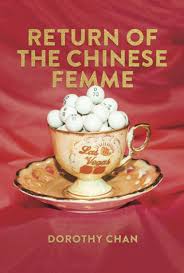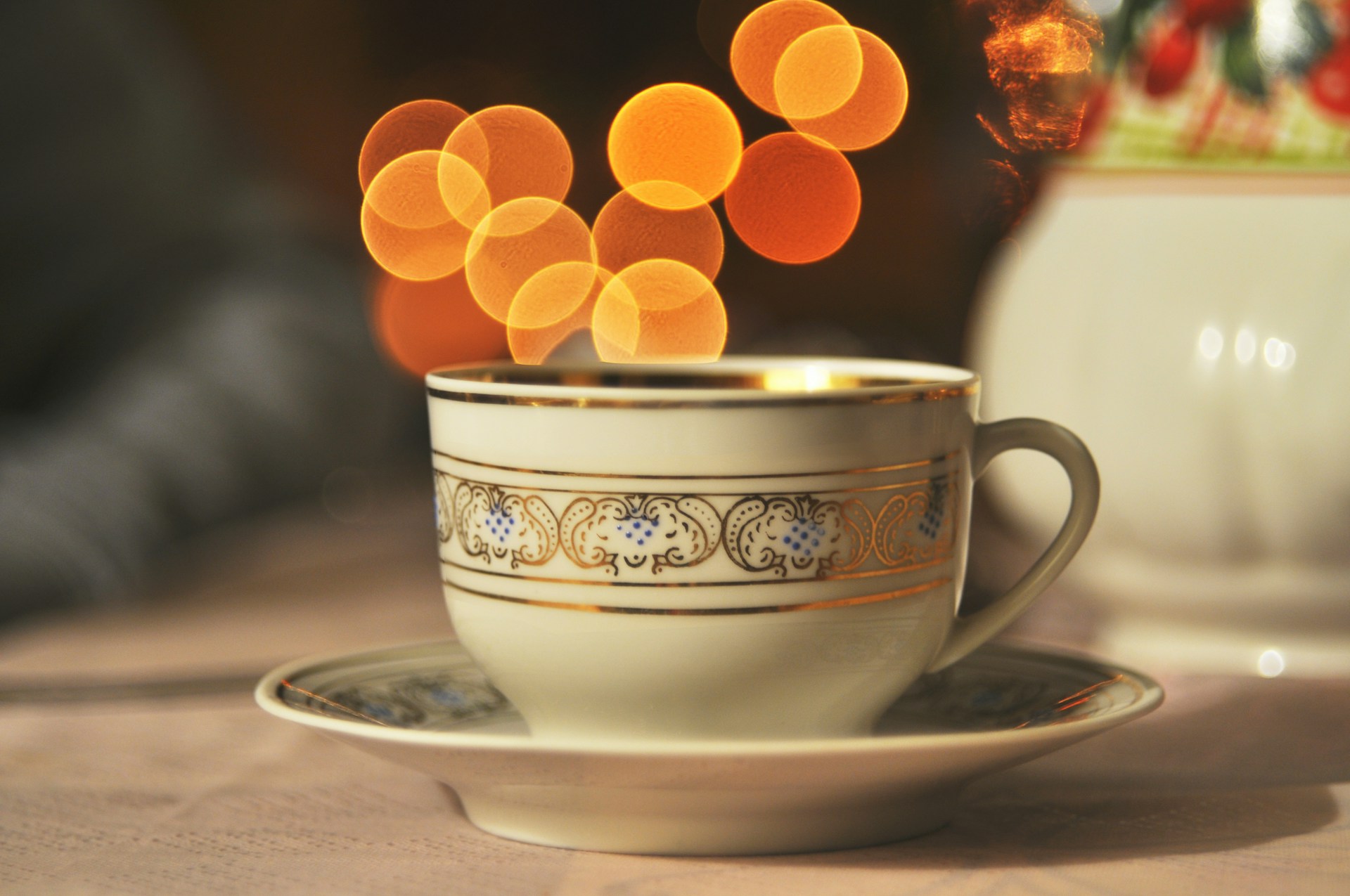by Nicole Yurcaba

Dorothy Chan’s Return of the Chinese Femme, published by Deep Vellum, is exactly the type of poetry collection we at Sage Cigarettes like to celebrate. It is fierce and fearless, offering poetry a new kind of speaker–proudly queer and openly rebellious, a defiant individual unafraid of challenging the status quo and the patriarchy. Simultaneously, the speaker challenges racism and discrimination directed at the Asian American community and explores what it means to be the child of immigrants. Pop culture references, excess, sex, and a resilient joy resound in each poem, making Return of the Chinese Femme a poetry collection one will not easily put down or forget.
“Triple Sonnet for Dennis Rodman, #91, on my Television Screen” is one of the collection’s most unforgettable poems. McDonald’s, a nineties childhood, and, of course, Dennis Rodman all make grand appearances. However, while the speaker celebrates these canonical staples of American society, there is a quiet critique of the mass consumerism and branding American society imposes not only on its citizens, but also the entire world. The speaker laments, “All I know is I’m mad my meal is sold / out. All I know is Dennis Rodman was my favorite / Bulls player as a kid, and how I remember.” The speaker segues into the on-demand, extra biggie nature inherent in American consumerism: “[…] At fast food joints / everyone asks for a double double, but why ask / for two when you could have three, and we all know / thrice is even nicer.” The subtle rhyme play of the words “thrice” and “nicer” add a snarkiness to the line, and from this point, the speaker’s reflections about Neopolitan ice cream and pizza only sweeten their critique of American excess. Triple espressos and juicy pickles “from the largest glass jar” abound, and food–specifically the quantities in which it arrives–becomes the epitome of American bravado: “Entree. Dessert. The rule of three applies / to meals the most.” Pizzas appear with “triple toppings” and a “soda to wash it all down.” Of course, as readers progress through Chan’s collection, they’ll notice that the “rule of three” applies to nearly all of Chan’s poems.
“Triple Sonnet for Asian Girlfriends: Cancel My Membership” opens with the fierce line “The Asian Girlfriends of White Guys Club / is a membership I never want to renew.” According to a 2013 NPR article, however, this is a pairing that dating app algorithms once favored. Nonetheless, the speaker of this particular poem challenges “old white men” who need to “stop with your war stories.” The poem is, essentially, a reclamation of self, of sexuality, and of identity as the speaker asserts, “but I’m // my own damn muse, thank you very much.” The speaker also provokes “western dating standards” who tell Asian women that white men are “the ideal man–/ the Adonis to my Asian Aphrodite.”
And, speaking of reclamation of the self and of identity, “Recipe for Teen Drama” takes a careful look at society’s obsession with youth as well as the influence of television and pop culture. The speaker declares, “Because I’m approaching thirty, I can finally star / in a teen drama on primetime TV.” The speaker tackles the hyper-superficiality of these dramas as they reflect that as a teen drama star they can develop the “can-do attitude / attitude of a heart throb who doesn’t belong much.” The critique continues as the speaker establishes that if they appeared in a teen drama, they’d “play the central character / who starts an affair with the hot teacher.” However, the speaker’s imaginings shift into a realization about reality, one in which “these men will never understand” because they “don’t get why I need to keep a little Hong Kong in me.” Similarly to “Triple Sonnet for Dennis Rodman, #91, on my Television Screen,” the poem develops a critical tone toward American excess. Again, it relies on food to ground the speaker’s critique. The speaker depicts eating chicken wings “Cantonese style in front of the television,” and the memory transforms into a litany of ingredients that form the recipe for the chicken wings. They conclude with the command, “Watch your primetime soap”–a declaration which perfectly sums up how the excess and falsehoods perpetuated by television can overshadow even something as intimate as a special recipe.
What consequences does the excessive exposure to false realities portrayed in an endless stream of television shows and media actually have? Well, that is what “Carmen Electra Once Said” explores. In the poem, the speaker portrays American actress and former wife of Dennis Rodman Carmen Electra as an authority on how to live one’s life. The speaker describes Electra as “the superhero origin story of legends, or the starlet rising out of / the clam shell.” Once more, the speaker criticizes the excess of the rich:
I remember the scene during Electra’s seven-episode reality show, Till Death Do
Us Part, when Carmen and her then-husband Dave Navarro, taste wedding
cakes. What a predicament to choose betweenSweet, classic All-American vanilla and elegant, British-inspired and layered
with toffee.
The imagery’s reliance on the phrases “classic All-American vanilla” and “British-inspired” appear as subtle stabs at colonialism, whiteness, and assimilation. The speaker then launches into a tirade about the reality show Desperate Housewives, but they return to the Electra-Navarro affair, declaring “And for the record, Dave Navarro preferred Ho Hos over any fancy cakes.” This tongue-in-cheek metaphor develops into the question “Why are goddesses so fleeting?”–yet another linguistic and philosophical lunge at pop culture’s superficiality and plasticity.
The poems in Return of the Chinese Femme possess a rowdy charm. They’re the types of poems that, if one were sitting in an audience, listening to Chan read them, one would probably snicker at their dark humor, their cultural criticisms, and their decadent celebrations. Nonetheless, despite their quite socio-political and socio-economic undertones, each poem is a call to love life, to honor one’s self and identity, and to toast the beautiful wrecks our lives will probably become.
Nicole Yurcaba (Ukrainian: Нікола Юрцаба–Nikola Yurtsaba) is a Ukrainian (Hutsul/Lemko) American poet and essayist. Her poems and essays have appeared in The Atlanta Review, The Lindenwood Review, Whiskey Island, Raven Chronicles, West Trade Review, Appalachian Heritage, North of Oxford, and many other online and print journals. Nicole teaches poetry workshops for Southern New Hampshire University and is a guest book reviewer for Sage Cigarettes, Tupelo Quarterly, Colorado Review, and The Southern Review of Books.



Add your first comment to this post